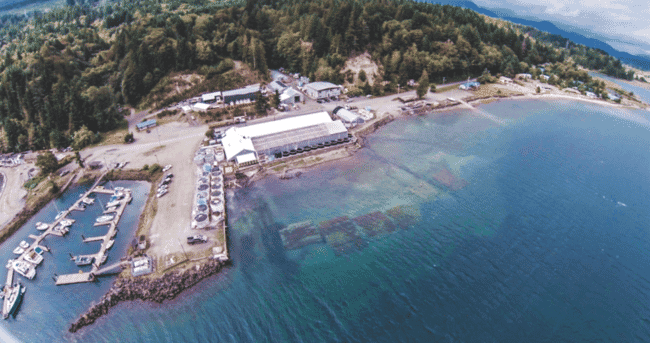The certification covers Pacific Seafood’s oyster processing plant and farm in South Bend, Washington, and their hatchery in Quilcene. It marks the first step toward the company’s goal that all Pacific Seafood oysters achieve four-star status. This year the company will focus on certifying additional facilities and adding new four-star oyster products to the market. The company also operates a BAP-certified steelhead farm in Nespelem, Washington.

The BAP mollusc farm standards require farms to manage stocking rates to avoid exceeding the environment’s production carrying capacity. It also requires farms to conduct monitoring of neighbouring benthic communities to ensure that the consumption of naturally occurring organisms by the molluscs is not causing negative sediment impacts. Farms must also carefully monitor the surrounding environment to ensure it remains free of potential contaminants that may cause human food-safety risks.
Although oysters feed on natural phytoplankton these factors all contribute toward ensuring that responsible feeding practices are being adhered to at BAP-certified mollusc farms. Thus the fourth – “feed-related” – star will be awarded to all BAP-certified mollusc farms associated with a processing plant, farm and hatchery, allowing them to achieve this status. In the case of mollusc farms where hatcheries are currently uncommon, up to three stars can be achieved, the first two from the processing plant and farm, and the third by awarding the “feed-related” star for responsible feeding practices.
“At Pacific Seafood we are dedicated to providing the healthiest protein on the planet, which is why having third-party validation by BAP of our entire supply chain for oysters is critical,” said Chris Jones, hatchery operations manager for Pacific Seafood. “We are proud to begin offering our customers oysters that meet the highest standards of respect, throughout the entire supply chain, for the environment, workers and the community as well as animal welfare and food safety.”
The BAP programme – which is run by the Global Aquaculture Alliance – is continuing to expand, with the number BAP-certified facilities hitting 1,864 through the first 11 months of 2017, up nearly 20 percent from the end of 2016. The total includes 37 mollusc farms, producing more than 56,000 tonnes of product per year. The release of the BAP mollusc farm standards in May 2016 opened the door for oyster facilities to pursue BAP certification, as the standards, which replaced the BAP mussel farm standards, encompass all major farmed mollusc species, including mussels, scallops, clams, abalone and oysters.



